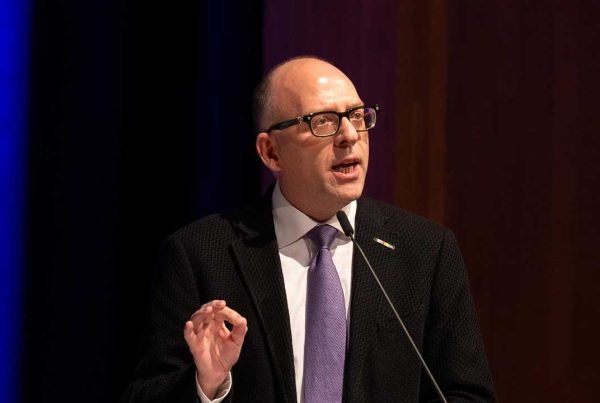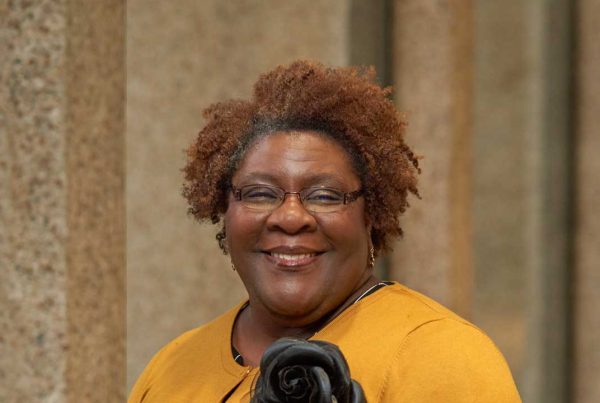Knowledge, openness and sensitivity to trauma will be essential if we are to break the cycle of poverty and address mental illness, people who attended the Faith & Action Spring Conference were told.
Keynote speaker Schroeder Stribling, President and CEO of Mental Health America, and an array of local experts, faith leaders and mental health specialists emphasized the role that trauma plays in the lives of people living on the margins and urged attendees to pursue opportunities and initiatives that are sensitive to the ways that poverty and mental illness often are intertwined.
If you missed the March 9 event, we’re offering opportunities for you to catch up:
- For a quick overview, read our Lessons Learned, where you’ll find insights from Stribling as well as mental health practitioners, local nonprofit and faith community leaders, Indianapolis Colts Vice Chairman Kalen Jackson and more. (A sample: Progress is possible if we flex and adapt. We cannot expect new results if we hold on to old ways of doing things. Describing innovative ways his team has sought to expand the workforce and increase access to mental health services, Jay Chaudhary Dir. Of the Division of Mental Health and Addiction, Indiana Family and Social Services Administration, urged the adoption of peer-to-peer recovery coaching and creative approaches to recruiting diverse talent to the profession. Janell Lane, Co-Founder of Courageous Healing, echoed the need for adapting to the needs of today. “We can’t change the stigma unless we change the experience,” she said. One example: Because they work with a population that lives in or near poverty, her team is especially mindful of the power dynamics involved in the way they dress and interact with others, and they very intentionally create a comfortable and relaxing atmosphere so that their neighbors feel valued.)
- To hear Stribling’s powerful and moving keynote, click here. Faith communities might especially appreciate how this video could support small-group and Sunday School conversations about putting faith into action and practicing “radical empathy.” This link also includes Stribling’s follow-up conversation with the Rev. Dr. Sarah Lund, author of Blessed are the Crazy: Breaking the Silence about Mental Illness, Family and Church.
- To watch the panel discussion about reducing the stigma of mental illness, click here. With perspectives offered from clinical, frontlines, academic and other perspectives, this conversation offers guidance for faith communities, government leaders and lay organizations that want to understand how to respond to mental health crises, how to teach emotional learning, how to support parents who are dealing with mental illness in their homes, and more.






